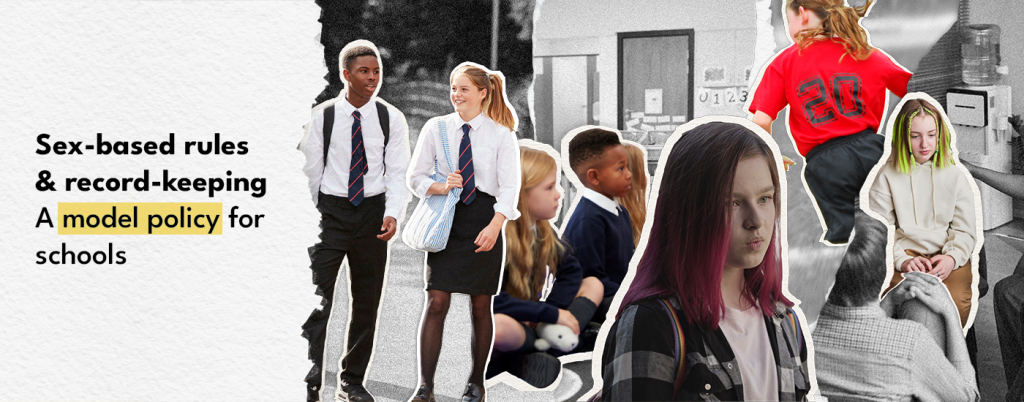New safeguarding guidance for schools in England starts to close loopholes
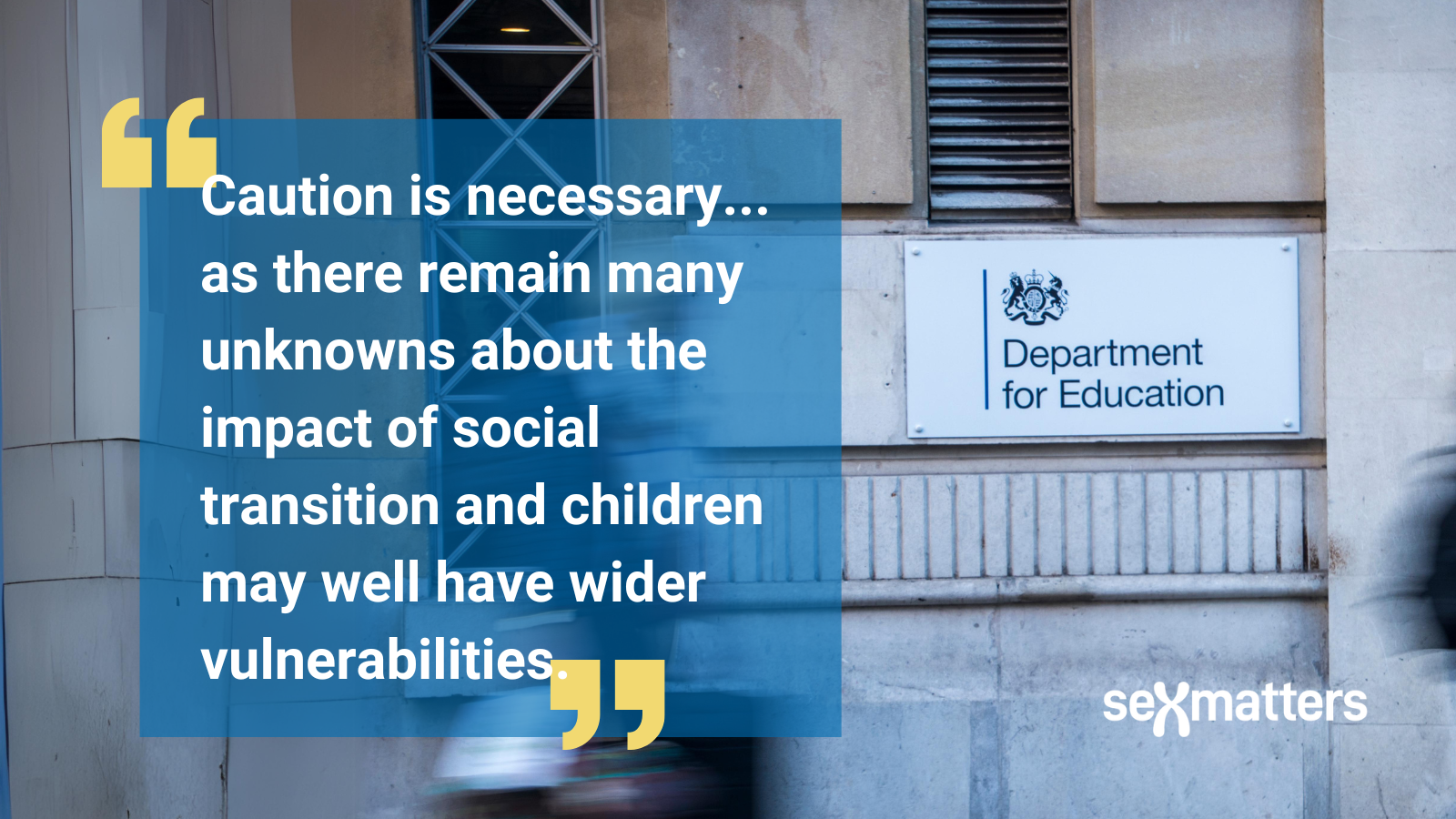
The Department for Education has finalised its statutory safeguarding guidance, Keeping children safe in education (KCSIE), closing a loophole that had been introduced as a result of lobbying by Stonewall.
Statutory safeguarding guidance says that schools should make sure that all staff are aware of issues that can put children at risk of harm, and be trained to spot and report indicators of abuse, neglect and exploitation, inside and outside the school and college, inside and outside home, and online, as well as mental-health problems.
The previous Stonewall-influenced version of KCSIE said there were no such potential harms in relation to a child adopting a transgender identity. The new version of the statutory guidance, following the Cass Review, says:
“… caution is necessary for children questioning their gender as there remain many unknowns about the impact of social transition and children may well have wider vulnerabilities, including having complex mental health and psychosocial needs, and in some cases additional diagnoses of autism spectrum disorder and/or attention deficit hyperactivity disorder.”
The new guidance points school leaders to the DfE guidance on gender-questioning children. This non-statutory guidance is still to be finalised, but the statutory safeguarding guidance now reflects its core message that schools should take a cautious approach and consider the broad range of a child’s individual needs, in partnership with the child’s parents (other than in the exceptionally rare circumstances where involving parents would constitute a significant risk of harm to the child), including any clinical advice that is available and how to address wider vulnerabilities.
Bayswater Support Group has published a useful analysis of safeguarding concerns, including:
- overlooking and failing to address other issues
- likelihood that a student may take harmful physical steps to change their body
- exposure to inappropriate or inaccurate online information
- adult influence and parental alienation.
Sex Matters’ model policy for schools has been developed to be in line with the new safeguarding statutory guidance.
Gender-identity lobby groups condemn guidance
Transgender lobby groups including Stonewall, Mermaids, the Good Law Project, Gendered Intelligence and AllSorts condemned the cautious approach of the DfE guidance, saying that it “seeks to deny the existence of transgender pupils”, discourages them from “coming out and being their authentic selves”, and could lead to young people being “forcibly outed to parents and teachers”.
A company that calls itself the “Family Planning Association” called for the Education Secretary to reverse the changes to KCSIE, saying: “The changes remove all reference to trans children” and “Teachers are asked to follow non-statutory, possibly discriminatory draft guidance”. But while the company bears the same name as the respected Family Planning Association charity, it turns out that it is a printing company in Derby that bought the charity’s assets when it went bust in 2019. It has continued to provide sex and relationship education materials to schools under the same brand.
Stonewall itself has clearly seen the writing on the wall, and is trying to move its brand out of this dangerous territory. Over the summer it quietly announced it was closing down its Schools Champions programme and would not be offering training to schools any more. But while Stonewall has backed away from providing guidance to schools, it has signposted schools to organisations such as Diversity Role Models, Gendered Intelligence, Just Like Us, Mermaids and The Proud Trust.
Teenage activists at risk
Meanwhile the DfE has had a vivid doorstep demonstration of the safeguarding risk.
A group of teenagers spent several days camping outside the department’s London office, climbing its front wall in a protest calling for children to be enabled to socially transition in school and for puberty blockers to be prescribed on demand. The children spent their time colouring in paper coffins with ghoulish messages for the Health Secretary, Wes Streeting.
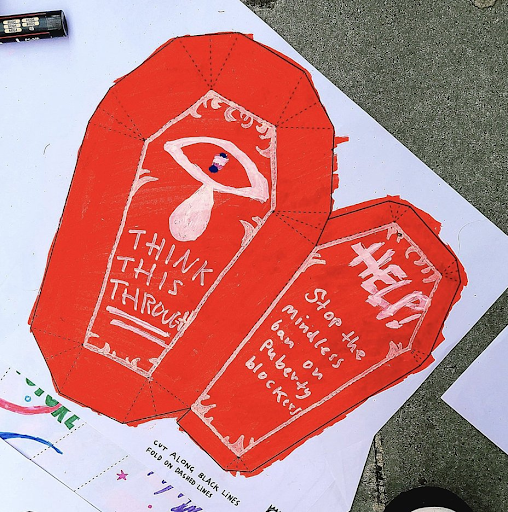
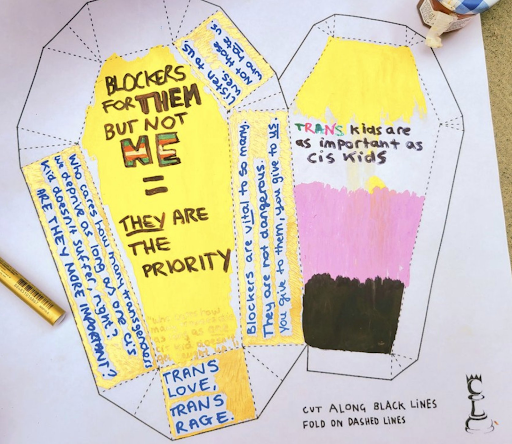
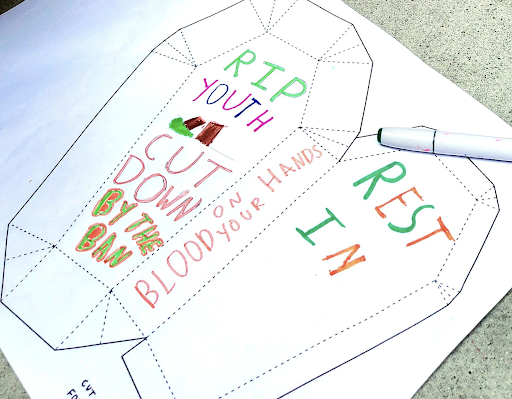
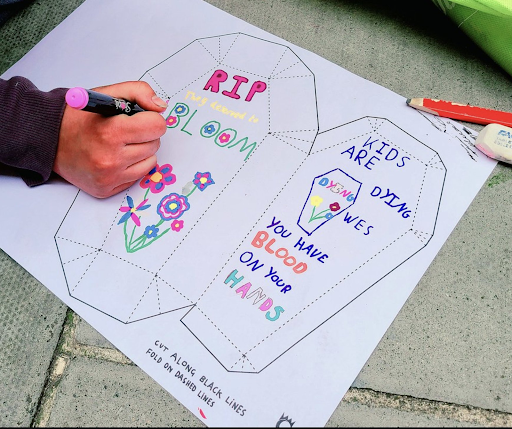
The group of mainly teenaged girls (“transmascs”) solicited £13,000 of donations online and was joined by several adult men identifying as “trans fems”, as well as other adults who responded to a public online invitation to come and watch over them while they slept.
The 17-year-old organiser told Anti-Capitalist Resistance:
“Very few of us are neurotypical; there are a lot of autistic people here.”
The children wrote a letter saying they were advocating for their “very existence”.

The children’s protest was supported by several of their parents, as well as the Good Law Project, Trans Solidarity Alliance, Gendered Intelligence, Nancy Kelley (former CEO of Stonewall) and Susie Green (former CEO of Mermaids).
This reckless activism by vulnerable teenagers is likely to continue in schools in the new term. The group says:
“We’re planning on a big push to visit every school youth group in London and, as much as we can, every queer youth group in England or the UK.”
As well as the support of activist organisations, some of these children have parents who want them to live “in stealth” as the opposite sex; others want to be treated as the opposite sex at school without their parents knowing.
Safeguarding lessons must be put into practice
Janice Turner wrote in The Times on Friday about how safeguarding can fail when a group is not subject to scrutiny. LGBT Youth Scotland supports the same campaigning messages promoting childhood transition as Stonewall, Mermaids and the children outside the DfE. It has strongly influenced the Scottish Government, and it continues to run a schools programme in primary schools as well as secondary schools in Scotland.
The organisation received funding from BBC Children in Need for 14 years, even after its first chief executive, James Rennie, was convicted of sexually abusing a three-month-old baby. It finally lost funding only after it emerged that a co-author of its 2010 guidance for schools had been convicted of sharing indecent images of children as young as newborns and attempting to groom someone he thought was a 13-year-old boy online.
Safeguarding systems have been built up over years of lessons learned from the harrowing cases of child abuse, abuse of vulnerable adults and failures of care in schools, hospitals and residential homes. A key lesson is not to create a caste of people to whom ordinary rules and scrutiny do not apply.
Lessons from previous inquiries into cases of abuse (such as the White Inquiry on children’s homes in Islington and the Warner Report on abuse in children’s homes in Leicestershire) have highlighted how a politicised and simplistic approach to equal opportunities led children’s services to employ people who were not safe to work with children, and to look away when those people practised outlandish and unevidenced “therapies” that enabled abuse.
Safeguarding systems are founded on risk assessment, transparency, candour, professional curiosity and reflective practice. None of this is possible when you pretend some boys are girls and some girls are boys, or that adult men (including those with a sexual paraphilia for cross-dressing) are women. The biggest risk factor for sexual offending is being male.
Safeguarding is also impossible when those who speak up about it are attacked as “bigots”, and made to fear for their livelihoods. Turner said she spoke to a gay man who had worked at Stonewall in the early 2000s producing materials for schools. The guide for primary schools said little more than that gay families exist; the one for secondary kids was about emerging teenage sexuality. But there was a mix-up and some secondary guides went to primaries. Aghast, this man offered to resign; the materials were retrieved with apologies. A gay charity dreaded being accused of sexualising children. Now, he thinks, it wouldn’t care, because no one would dare point a finger.

